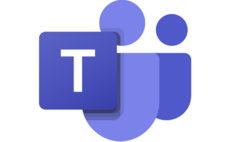
Image: Randy Fath
Developing and curating your database queries is a critical process within most organisations, though there are times when this part of the data lifecycle is handled more as an ad-hoc, solo creative exercise.
It's less than ideal when this happens because so much knowledge about the data and its nature is often held with a limited number of developers who are not often afforded the opportunity to share.
We previously talked about the idea of ensuring that your database tools capture this kind of knowledge as a part of the process of sharing, especially when onboarding new employees; not to mention the frequent need to be collaborating with others.
Why are collaborating teams important?
Collaboration is the force multiplier that turns a disparate group of developers and admins and users into a powerhouse of productivity. It's practically a given to say that collaboration leads to better outcomes for all involved, but making collaboration work well is largely reliant on the tools that the collaborators use.
Tools built for use only in a user's isolated silo tend to make collaboration harder. Collaboration is, however, the natural state for the social animal and users will find a way, inelegant though it may be. From printing out and handing out URLs or shared drives and web pages all the way to 'modern' copy and pasting in and out of Slack channels, users have worked out what they need to share and how they can achieve that.
There are problems with this state of things though. There's no easy repeatability for the sharing process, there's no way to make sure that if something is shared and updated, that the updates get to the people already shared with. And there's the issue that sensitive information may be leaking into channels where you don't want it appearing, where bad actors may be present.
Tool-supported teams work better
Over the years at Studio 3T, we've talked to our users about how they've been sharing data, from connections to queries in our MongoDB GUI/IDE, and we've seen what their sharing needs demanded. What became clear was a need for an ad-hoc user-defined sharing environment, rather than a top-down administrator controlled centralised solution which is often many people's first thought when they consider enabling sharing. Modern teams are fluid, reorganising themselves to the task at hand whereas centralised sharing inhibits that fluidity.
Studio 3T has opted for a flexible solution to enable sharing which allows users to invite others to share and create safe sharing enclaves, embedded on their desktop and as part of their daily workflow. That's another critical part of making sharing and collaboration effective - the ability to do it without changing mode and using your everyday tools. Every different step that you need to take to share something is additional friction and humans, always looking for the easiest path, can easily opt not to share.
Creating a collaborative tool
With this in mind, when building your own collaborative environment, there are some simple rules we applied which can apply to your planning:
- Look to eliminate all friction points. Every change of tool, switch to other systems or routinely working through a different channel will reduce the likelihood of collaboration.
- Avoid rigid structures and hierarchy - your organisation and people are constantly evolving and having to manage a shadow collaboration structure just leads to more friction.
- Encourage sharing within your tools. Make the process not just easy but natural.
- Share only what you need to share. Focus on the sharable content that brings the most value to your process. It's unfortunately too easy to create platforms which can share everything, yet end up making sharing the basics complex.
At Studio 3T, we've put these principles into practice as we roll out a new Team Sharing extension of Studio 3T.
Persisting knowledge in your tools and making that knowledge actively accessible through sharing makes for a faster and more productive environment. Combine that with people being able to collaborate on honing database queries for maximum insight and performance in a repeatable way. We believe this is the way forward and most importantly it makes your teams more effective than ever before.
This post was sponsored by 3T Software Labs




















